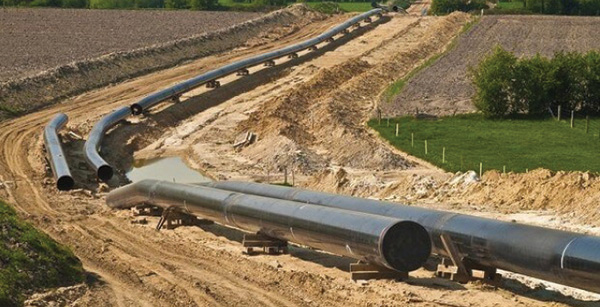Pipeline Doubts put Bakken Shale Reboot on Hold
By Taru Jain and Arathy S Nair
(Reuters) – North Dakota oil producers face new pressures to delay bringing back more of their recently curbed output after a U.S. court ruling this month put in jeopardy the pipeline that transports most of the region's oil, executives and analysts said.
Oil producers in the Bakken, the second largest U.S. shale field, cut May output by about 500,000 barrels per day after U.S. prices tumbled in March on the heels of global coronavirus shutdowns.
They were slowly restarting some wells when the court ruled the region's main pipeline must face a new environmental review that could halt its operation for a year.
An appeals court has allowed Energy Transfer LP's Dakota Access Pipeline (DAPL) to continue operating for now, but the threat of closure makes reversing cutbacks and drilling new wells too risky, executives and analysts say.
DAPL links Bakken producers to Midwest and Gulf of Mexico customers, accounting for about 40% of volumes transported to those regions. Rail transport, which is $3 to $6 a barrel more expensive, is expected to expand if the pipeline closes.
Hess Corp, which has about 55,000 bpd of transportation on DAPL, said on Wednesday it can move all its Bakken output if the pipeline was shut, but that it would cost a few more dollars per barrel.
Continental Resources Inc, a top Bakken producer, did not respond to a request for comment, while rival Marathon Oil Corp declined to comment.
Producers will not be willing to commit to restarting closed wells or drilling news ones "unless they know more" on the pipeline's future, said Nicholas O'Grady, chief executive officer at Northern Oil and Gas Inc, which has invested in about 7,000 wells in North Dakota's Williston Basin.
NOG is factoring the impact of a DAPL shutdown into its spending plans for new wells and acquisitions, he said.
Nationally, U.S. shale producers have revived as much as half of the production they cut in May. In the Bakken, only a fifth of 510,000 barrels per day cut were back on line last month, according to North Dakota state figures.
The current per barrel price <BAK-> of $40.14 is below the $46.54 that Deutsche Bank analysts estimate Bakken producers need to break even on new wells even before additional rail costs are factored in.
Publicly traded oil companies plan to spend about $3.1 billion in Bakken this year, down from $7.5 billion in 2019, according to analytics firm Rystad Energy.
"Right now, we just don't have all the information. We are in a holding pattern," said J.R. Reger, whose company Iron Oil suspended drilling and completing new Bakken wells in March.
ONEOK Inc, which owns natural gas pipelines in the Williston basin, said on Tuesday it expects 2020 earnings at the lower end of its previous guidance. A possible shutdown of DAPL is expected to hurt gas takeaway and output as it is mainly a byproduct of oil production.
Related News
Related News

- Keystone Oil Pipeline Resumes Operations After Temporary Shutdown
- Freeport LNG Plant Runs Near Zero Consumption for Fifth Day
- Biden Administration Buys Oil for Emergency Reserve Above Target Price
- Mexico Seizes Air Liquide's Hydrogen Plant at Pemex Refinery
- Enbridge to Invest $500 Million in Pipeline Assets, Including Expansion of 850-Mile Gray Oak Pipeline
- Enbridge Receives Approval to Begin Service on Louisiana Venice Gas Pipeline Project
- U.S. to Acquire 3 Million Barrels of Oil for Emergency Reserve in September
- AG&P LNG Acquires 49% Stake in Vietnam's Cai Mep LNG Terminal
- BP's Carbon Emissions Increase in 2023, Ending Decline Since 2019
- Texas Sues EPA Over Methane Emission Rules for Oil and Gas Sector





Comments